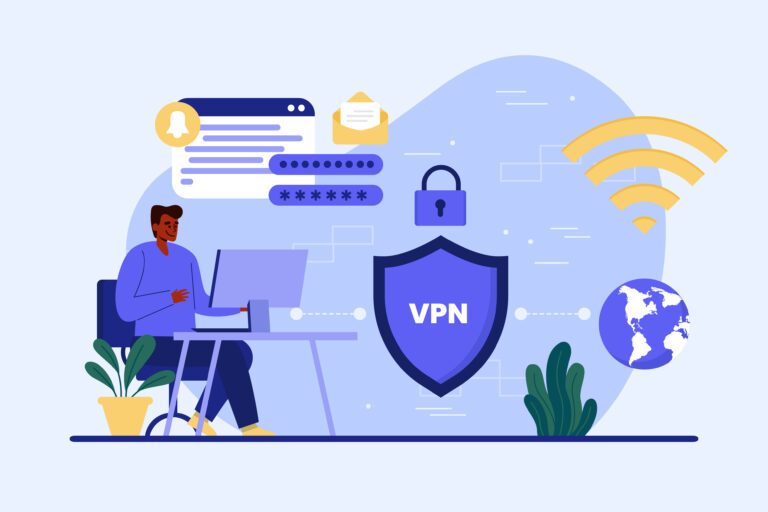A VPN, or a Virtual Private Network, is a tool that allows users to increase their privacy and security while browsing the web. This technology encrypts your data when you use the internet so that hackers or scammers cannot read it, though most browsers today already do this as well. VPNs work by connecting your device to another computer/server via the internet, which allows you to browse the internet using that computer’s internet connection. If the server your device connects to is in a different country, it will appear as if your device is in that country. For example, since many streaming platforms limit the availability of shows and movies to certain regions, some people use VPNs to trick the service into thinking they are in a different region in order to watch the desired content. If the show is only available in France, and you connect to a server in France using a VPN, the streaming service will think you are in France and will allow you to watch the show.

Essentially, a VPN creates a secure channel between your device and the internet. VPNs can act as a barrier between you and other internet users by disguising your IP address, masking your online activity, hiding your actual location, and preventing online tracking by websites and advertisers. Overall, VPNs have many uses. Not only can VPNs be used for personal safety and security or to access content available in other countries, but they also can be used to access home or business networks while traveling or bypass internet censorship.
There are several different types of VPN, including Personal VPNs, Remote Access VPNs, and Site-to-Site VPNs. Personal VPNs are arguably the most popular type of VPN and allow individuals to secure their internet connection from anywhere. Personal VPNs can be used by installing software on your device that will encrypt your internet traffic and direct it through a VPN server. These are the VPNs you probably think of when you think of VPNs as you’ve likely heard advertisements for them during some of your favorite radio shows or podcasts. In a business setting, these VPNs can be problematic though. Consumer versions of VPNs can interfere with security software and other accounts. For example, if a VPN tricks your Microsoft account into believing your log in attempt is originating from a different country, it may deny your log in request as fraud or unusual activity.
Next, there are Remote Access VPNs. These VPNs work similarly to Personal VPNs, but allow users to connect to a private network using the internet rather than connecting to a VPN server. They are also more useful in business settings. Using a Remote Access VPN, users can access files, applications, or other internal systems as if they are physically present where the network is. These VPNs are especially valuable to people who travel frequently or work from home. If you are using your VPN at work, Remote Access VPNs or Site-to-Site VPNs would be the best two options.
Site-to-Site VPNs allow multiple branches of a business to connect securely. By using this VPN, businesses can connect multiple physical locations into a single private network rather than having separate networks for each location. Site-to-Site VPNs create a secure channel of communication just like the other two, but between multiple remote sites rather than between an individual and a private network or server.
There are several different VPN services out there, each that provide different features. It is important that you research which VPN will fit your needs as an individual or business. A trusted IT partner like Blue Oak Technology Solutions can provide guidance in both choosing the right VPN and the installation of the chosen VPN.
Read our previous post: The Biometrics of Today and Tomorrow
